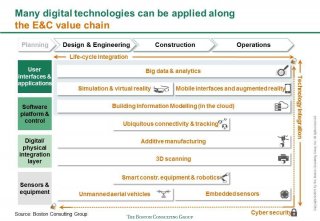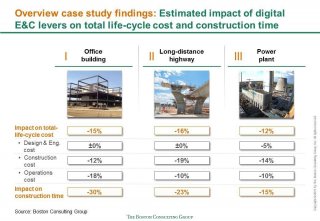
Construction industry
 Unlike other companies, the Engineering and Construction sector is slow to consider new technologies, and has now undoubtedly never undergone a significant transformation. Consequently, productivity features stagnated over the past 40 many years, or in some cases, even declined.
Unlike other companies, the Engineering and Construction sector is slow to consider new technologies, and has now undoubtedly never undergone a significant transformation. Consequently, productivity features stagnated over the past 40 many years, or in some cases, even declined.
This unimpressive record seems set to alter very soon, and very significantly. Indeed, powerful changes seem to be taking place – though maybe not however on a sufficiently wide scale – in lots of areas of the building business. The author William Gibson’s famous phrase suits the industry completely: the long term is here these days – it is only not evenly distributed.
The main element is digitalization. More and more construction jobs are including systems of digital sensors, smart devices, cellular devices, and brand new software applications – increasingly incorporated with a main platform to build Information modeling (BIM).
The challenge now is to achieve widespread adoption and correct traction. Wherever the latest technologies have actually properly permeated this disconnected business, the perspective is a practically 20per cent reduction in complete life-cycle prices of a project, along with significant improvements in conclusion time, high quality, and security.
 Construction reconstructed in every its levels
Construction reconstructed in every its levels
Technical advances are actually revolutionizing most things inside life-cycle of a built asset, from conceptualization to demolition. The chart below reveals the relevance of electronic technologies along the engineering and building business’s worth string.
Digitalization is transforming all three major life-cycle phases of building projects. Consider the following situation – not any longer futuristic, but “here today”, though its foundations are nevertheless distributed patchily over disparate projects.
Through the Design & Engineering phase, BIM identifies prospective design clashes and constructability problems, thus averting high priced corrective rework; plus it improves the tendering process by simply making the knowledge much more transparent and available.
A fascinating example is of Crossrail – one of many world’s largest and a lot of complex infrastructure jobs, building an important brand-new underground line across London: the developers and engineers are utilising a centralized set of connected BIM databases to incorporate about 1.7 million CAD files into a single information design.

















